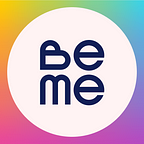Why The Right Digital Mental Health Support For Teens Needs Tech And Live Support
By Nicoletta “Nicki” Tessler, PsyD, MBA and Danielle Ramo, PhD
Gen Z teens have come to expect immediacy and convenience in all aspects of life. Not surprisingly then, teens often seek mental health information on the internet and social media. Unlike older generations, they are far less likely to gravitate toward traditional in-person services, especially if digital mental health resources are available.
As experts in clinical mental health research and psychology, we firmly believe, with data to back us up, a two-pronged approach is effective in delivering mental health care to teens through the dual supports of technology and live human connection.
Teens love and stay engaged with technology. Acknowledging that digital communications are deeply entrenched in how they socialize, we must lean into teens’ chosen ways of communicating to better support them. Focus groups with teens showed they favor mobile health coaching and prefer online peer-to-peer interactions with a professional moderator to get support. While it’s not the only way they need support, delivering care through tech aligns with how teens live their lives in 2022.
We now know that tech can deliver support to teens effectively. A 2021 randomized clinical trial showed how short skills-based videos delivered digitally helped avoid worsening mental health in students. Behavioral therapy that uses mindfulness, acceptance, and regulating emotions was delivered to students by video, and researchers concluded this brief, highly scalable intervention could extend the reach of mental health treatment. Another trial showed that an app designed to help teens transitioning to college feel less lonely was able to buffer against loneliness and depression in the first semester.
We, too, believe live human connection is important for supporting teens and is likely to enhance outcomes. Dr. Ramo’s lab at UC San Francisco in 2019 looked at how live coaching support enhanced the effectiveness of digital intervention in teens around smoking cessation. More so than delivering content automated, engagement with a live counselor helped smokers achieve improved smoking cessation outcomes.
Peer-to-peer coaching is another effective method for delivering evidence-based skills. As a UCLA research study showed, coaching from trained peers, when delivered well and consistently online, can reduce the burden of mental illness for those who don’t have access to a licensed practitioner (e.g., a psychologist or a psychiatrist). And if you can afford to see a practitioner, the average wait time for an appointment is over three months, depending on where you live.
With all that top of mind, our teen mental health app, BeMe, is designed entirely for teens, meeting them where they are, on their phones, in a fun, safe, familiar mobile format that combines science-backed digital tools with live human connection, for maximum support and impact. The tech + live support combination has the greatest promise of responding to what teens tell us they want and need, and will use.
Nicoletta “Nicki” Tessler, PsyD, MBA is CEO and Co-Founder of BeMe Health, a licensed psychologist, and mom of two teens. She has spent her career as a business leader in mental health care delivery. She founded BeMe to bring together the diverse team needed to truly address the teen mental health crisis.
Danielle Ramo, Ph.D., is Chief Clinical Officer of BeMe Health, a licensed psychologist, and mom of three soon-to-be teens. She has spent her career doing academic research, speaking, and writing about the intersection of mental health, substance use, and technology. She joined BeMe to help ensure our product makes a positive impact on teen lives.
